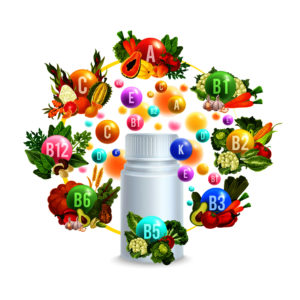
The skin is the body’s largest organ, and several internal and environmental factors can cause it to become dry. Skin likes consistency, so allergies, dehydration, aging, vitamin deficiencies, and seasonal changes can all wreak havoc on its condition.
There are a number of ways to moisturize the skin and reduce dryness, depending on what’s causing it. In addition to using moisturizers and drinking more water and using, which has tremendous benefits for the skin and overall health in general, there are several vitamins and supplements that may help.
1. Collagen
Collagen, the human body’s most abundant protein, is largely responsible for the skin’s integrity and helps lock in moisture. With age, the body produces less and less collagen, which can lead to dry skin. Not only can a collagen help fortify and hydrate dry skin, but it can also reduce fine lines and wrinkles.
2. Vitamin C
A powerhouse antioxidant, vitamin C plays a vital role in skin’s health. Without sufficient levels of vitamin C, the body can’t produce collagen. Research has shown that taking a vitamin C supplement reduces the amount of moisture lost from the skin, strengthening its elasticity and improving its texture.
3. Fish Oil
Fish oil contains anti-inflammatory essential fatty acids DHA (docosahexaenoic acid) and EPA (eicosapentaenoic acid), which have tremendous benefits for the skin. A supplement can improve dry skin by strengthening the skin’s barrier layer, decreasing moisture loss and improving the skin’s texture.
4. Vitamin D
Numerous studies have shown that having low levels of vitamin D in the bloodstream directly correlates to dry skin, including conditions such as psoriasis and eczema. As vitamin D levels increase, so too does the skin’s moisture, making a strong case for taking a supplement.
5. Hyaluronic Acid
A single gram of hyaluronic acid can hold up to 1,000 times its weight — six liters — of moisture. It occurs naturally in the skin and is responsible for keeping it hydrated and promoting cell renewal. Adding hyaluronic acid to your skincare routine will give you a serious moisture boost.
6. Probiotics
Recent research shows a link between a healthy gut and skin. Similarly to how they work in the gut, probiotics aid in nutrient absorption in the skin, which has a domino effect and boosts production of naturally-occurring moisturizers.
7. Ceramides
Ceramides are a type of fat molecule found in the skin’s outermost barrier layer that binds cells together and plays an essential role in helping skin stay moisturized. With age, ceramide levels naturally decrease. A supplement can counteract it, increasing skin’s moisture and improving conditions like eczema.
8. Aloe Vera
Aloe vera has been used as an herbal remedy since ancient times. It not only adds moisture to the skin but works to seal it in as well, serving double duty for dry skin. Its healing properties promote skin cell renewal and turnover as well, slowing the signs of aging.
Dry skin can be caused by several things, including dehydration, aging, and seasonal allergies. Numerous studies have shown that some vitamins and supplements can counteract these factors, considerably improving skin’s hydration and overall condition.
While most of the supplements listed here are widely available, it’s wise to consult a medical professional before taking any of them. This is especially true if you’re experiencing chronic dry skin or related issues and nothing seems to help. Contact me today to learn more about the best way to care for your dry skin.
Previous Post Next Post